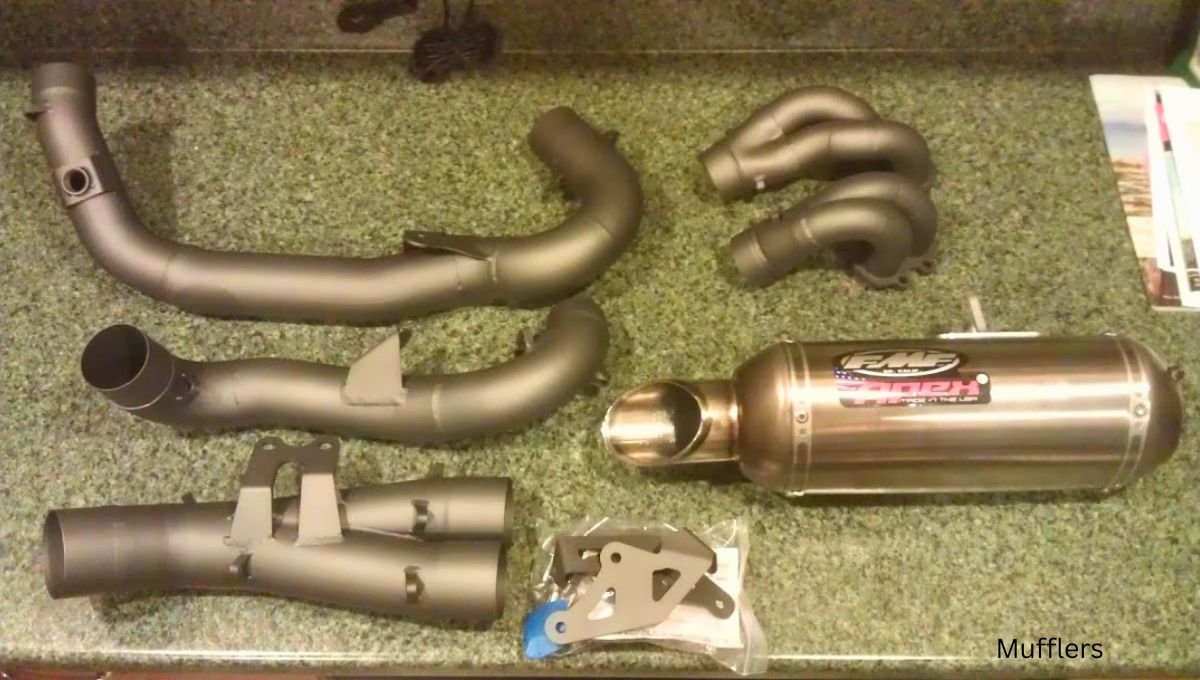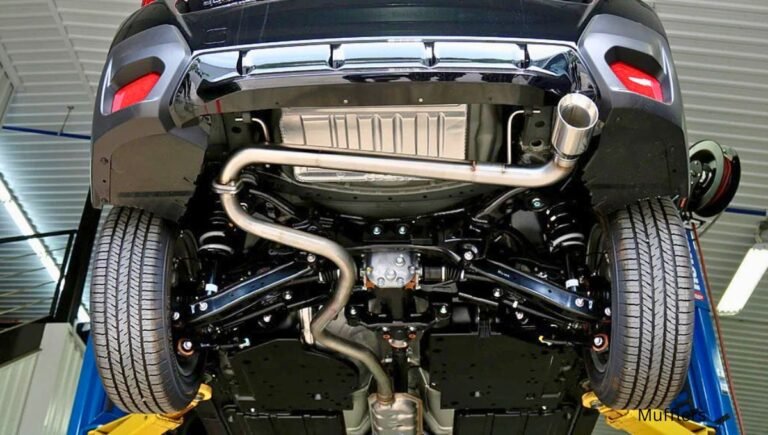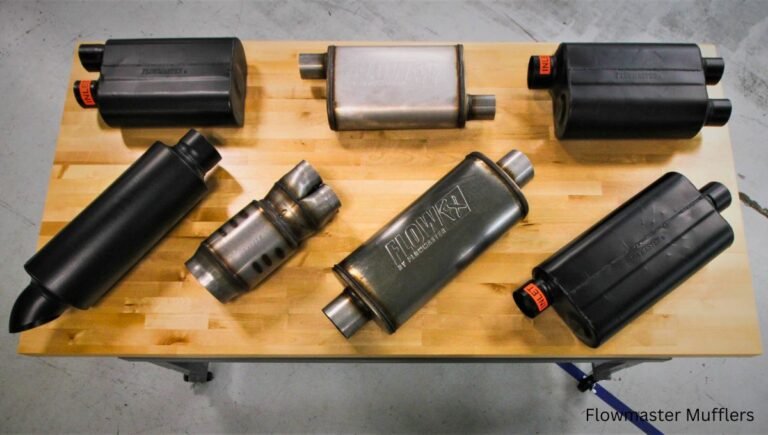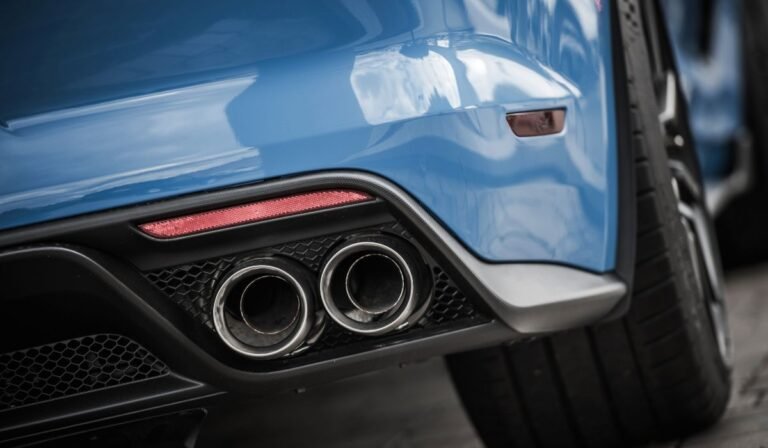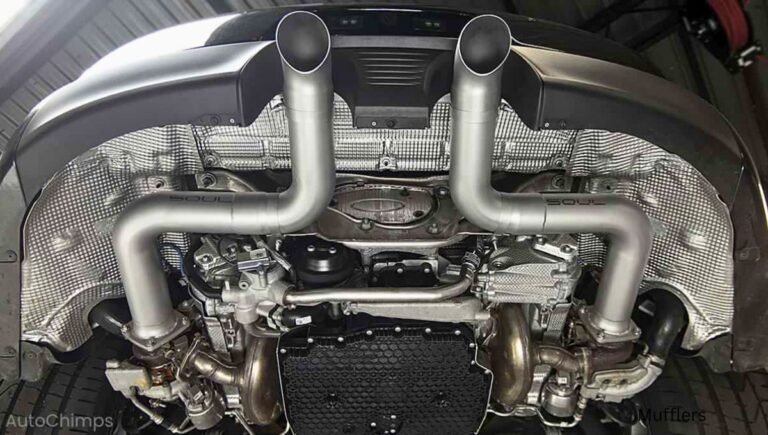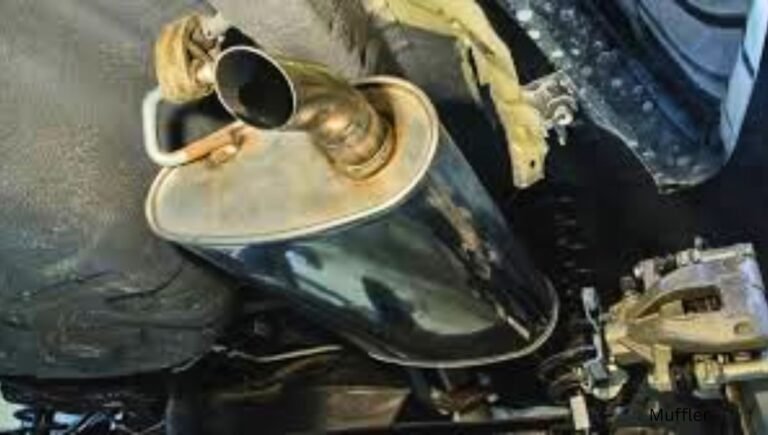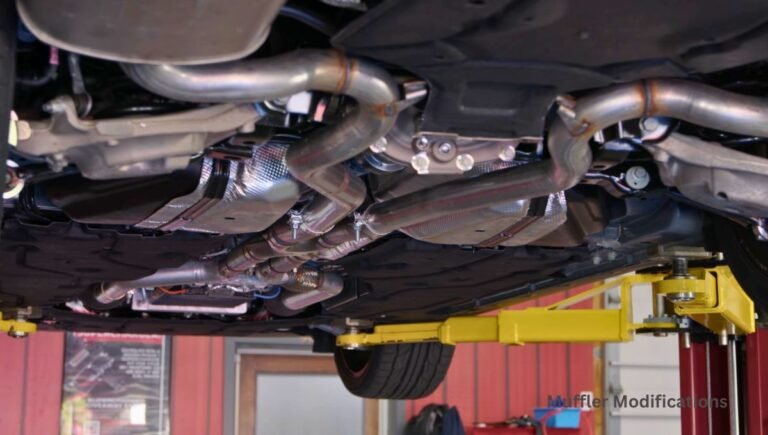How Much Does a Muffler Weigh? Unveiling the Facts
A muffler typically weigh around 20 pounds. Mufflers play a crucial role in reducing noise and controlling emissions in vehicles.
They are designed to muffle the sound produced by the exhaust gases as they exit the engine. Apart from noise reduction, mufflers also help to improve engine performance by maintaining back pressure in the exhaust system. The weight of a muffler can vary depending on its size, design, and the materials used in its construction.
While 20 pounds is a common weight for many mufflers, some may be lighter or heavier depending on these factors. Proper maintenance and regular inspection of the muffler are essential to ensure optimal performance and longevity of the vehicle’s exhaust system.
Introduction To Muffler Weight Variations
Factors Affecting Muffler Weight
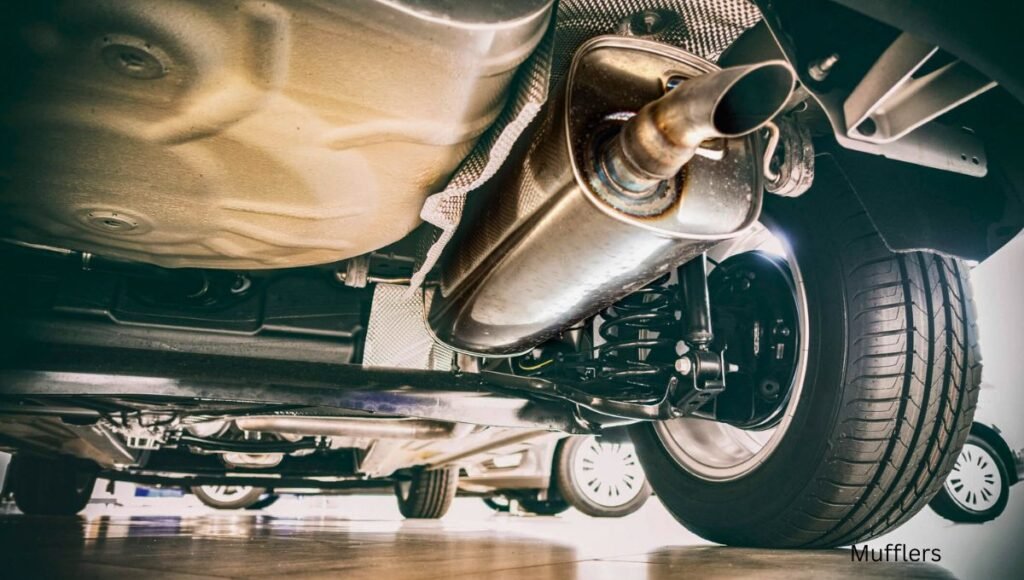
Muffler weight can vary based on several factors.
- Material: The type of material used affects the weight of the muffler.
- Design: The design and construction impact the overall weight.
- Size: Larger mufflers generally weigh more than smaller ones.
- Vehicle Type: Mufflers for different vehicles may have varying weight.
Importance Of Muffler Weight
The weight of a muffler plays a crucial role in the overall performance and handling of a vehicle.
- Vehicle Balance: It can affect the balance and stability of the vehicle.
- Fuel Efficiency: A lighter muffler can contribute to improved fuel efficiency.
- Exhaust System Stress: The weight can impact the stress on the exhaust system.
- Handling and Maneuverability: It can influence the vehicle’s handling and maneuverability.
Average Weight Range Of Mufflers
A muffler is an essential component of an automobile’s exhaust system that reduces the noise produced by the engine. The weight of a muffler depends on various factors such as the type of vehicle, the material used, and the design of the muffler.
However, the average weight range of mufflers can be estimated based on the type of vehicle. In this article, we will discuss the average weight range of mufflers for compact cars and sedans and SUVs and trucks.
Compact Cars And Sedans
Compact cars and sedans are known for their fuel efficiency and compact size. The mufflers used in these vehicles are relatively smaller in size and lighter in weight compared to SUVs and trucks. The average weight range of mufflers for compact cars and sedans is between 15 to 20 pounds. However, some aftermarket mufflers made of lightweight materials such as titanium or aluminum can weigh as low as 5 to 10 pounds.
Suvs And Trucks
SUVs and trucks are larger in size and have more powerful engines compared to compact cars and sedans. The mufflers used in these vehicles are bigger in size and heavier in weight. The average weight range of mufflers for SUVs and trucks is between 25 to 35 pounds. However, some high-performance mufflers made of lightweight materials such as carbon fiber can weigh as low as 15 to 20 pounds.
The weight of a muffler is an essential factor to consider when replacing it. The weight of the muffler can affect the performance and fuel efficiency of the vehicle. Therefore, it is recommended to choose a muffler that fits the vehicle’s specifications and provides the desired performance. By knowing the average weight range of mufflers for different types of vehicles, you can make an informed decision when choosing a muffler for your vehicle.
Materials Used In Muffler Construction
When it comes to muffler construction, the choice of materials plays a significant role in determining its weight, durability, and performance. Different materials are used in muffler construction, including steel, aluminum, and carbon fiber. In this section, we will explore each of these materials and their impact on muffler weight.
Steel Mufflers
It is a popular material used in muffler construction due to its durability and affordability. Steel mufflers are made using different grades of steel, such as aluminized steel, which is coated with aluminum to improve resistance to rust and corrosion.
Steel mufflers are relatively heavy compared to other materials, with an average weight of 15-25 pounds. The weight of steel mufflers can vary depending on the thickness of the steel used in their construction.
Aluminum Mufflers
Aluminum mufflers are a popular choice for high-performance vehicles due to their lightweight construction. It is a lightweight metal that offers excellent heat dissipation properties, making it ideal for mufflers.
Aluminum mufflers are typically 50% lighter than steel mufflers, with an average weight of 5-10 pounds. However, aluminum mufflers are more expensive than steel mufflers due to the higher cost of the material.
Carbon Fiber Mufflers
Carbon fiber is a high-performance material used in muffler construction due to its lightweight and strength. These mufflers are made using a composite material that consists of carbon fibers and epoxy resin. Carbon fiber mufflers are the lightest mufflers available, with an average weight of 2-5 pounds. However, carbon fiber mufflers are the most expensive mufflers due to the high cost of the material and the complexity of the manufacturing process.
| Material | Weight | Cost |
|---|---|---|
| Steel | 15-25 pounds | Affordable |
| Aluminum | 5-10 pounds | Expensive |
| Carbon Fiber | 2-5 pounds | Very expensive |
When choosing a muffler, it is essential to consider the weight of the material used in its construction. A lighter muffler can improve the vehicle’s performance and fuel efficiency. However, the choice of material should also consider the muffler’s durability, cost, and noise reduction properties.
Impact Of Muffler Weight On Vehicle Performance
The weight of a muffler can impact a vehicle’s performance, affecting its speed, fuel efficiency, and handling. A heavier muffler can increase the overall weight of the vehicle, potentially reducing its acceleration and agility. It’s important to consider the weight of the muffler when evaluating its impact on the vehicle’s performance.

Fuel Efficiency
Fuel efficiency is crucial for vehicle performance. A heavier muffler can lead to increased fuel consumption. It adds to the overall weight, requiring more energy to move the vehicle.
Handling and Dynamics
The weight of the muffler can affect the handling and dynamics of the vehicle. A heavier muffler can impact the balance and agility of the car, especially during cornering and quick maneuvers.
When a vehicle has a heavier muffler, it may experience reduced responsiveness and agility. This can affect the overall driving experience and maneuverability of the vehicle.
In addition, the weight distribution of the vehicle can be altered, impacting its stability and handling on the road.
Innovations In Muffler Design
When it comes to mufflers, weight and performance are two important factors to consider. Innovations in muffler design have allowed manufacturers to create lightweight mufflers that not only reduce the overall weight of the vehicle but also enhance its performance. In this article, we will explore two key innovations in muffler design: lightweight mufflers and performance-enhancing mufflers.
Lightweight Mufflers
One significant innovation in muffler design is the development of lightweight mufflers. These mufflers are designed to be lighter than traditional mufflers, resulting in reduced weight for the vehicle. The reduction in weight offers several advantages, including improved fuel efficiency and better handling.
Manufacturers achieve weight reduction in mufflers through the use of advanced materials such as aluminum and titanium. These materials are not only lightweight but also durable, ensuring that the muffler can withstand the harsh conditions of the exhaust system. By utilizing lightweight materials, manufacturers can reduce the overall weight of the vehicle without compromising on performance or durability.
Additionally, lightweight mufflers are often designed with a streamlined shape to further minimize weight and maximize airflow. This streamlined design helps in reducing drag, resulting in improved aerodynamics and increased fuel efficiency.
Performance-enhancing Mufflers
Another exciting innovation in muffler design is the development of performance-enhancing mufflers. These mufflers are specifically designed to optimize the performance of the vehicle by enhancing exhaust flow and reducing backpressure.
Performance-enhancing mufflers incorporate various technologies such as straight-through designs, perforated tubes, and sound absorption materials. These technologies work together to improve the flow of exhaust gases, allowing the engine to breathe more efficiently. As a result, the vehicle experiences increased horsepower, torque, and overall performance.
In addition to improving performance, these mufflers also produce a deep and aggressive exhaust note, enhancing the overall driving experience. Manufacturers often offer a range of performance-enhancing mufflers with different sound levels, allowing drivers to choose the one that best suits their preferences.
Overall, innovations in muffler design have revolutionized the automotive industry by introducing lightweight and performance-enhancing mufflers. These advancements not only reduce the weight of the vehicle but also optimize its performance, resulting in improved fuel efficiency, better handling, and an exhilarating driving experience.
Mufflers Across Different Vehicle Types
Mufflers serve as an integral component of a vehicle’s exhaust system, significantly reducing noise emissions and improving overall engine performance. The weight of a muffler varies across different vehicle types, influencing factors include the vehicle’s size, engine capacity, and specific design requirements.
Motorcycle Mufflers
Motorcycle mufflers are typically lightweight, weighing between 4 to 7 pounds due to their compact size and single-cylinder engines.
Commercial Vehicle Mufflers
In contrast, commercial vehicle mufflers are considerably heavier, with weights ranging from 30 to 60 pounds, reflecting the larger engine size and higher exhaust volume.
Custom Mufflers And Weight Considerations
Custom mufflers are designed to enhance your vehicle’s performance and sound, but weight considerations are also important. When it comes to muffler weight, it can vary depending on the material used, with options ranging from lightweight aluminum to heavier stainless steel.
This impacts the overall weight distribution of your vehicle, so it’s essential to consider how much a muffler weighs when making modifications.
Custom Fabrication
Custom mufflers offer tailored solutions for vehicle owners.
They are designed to meet specific performance needs.
Weight Vs. Sound Dampening
Choosing the right muffler weight impacts sound quality.
Lightweight mufflers may sacrifice some sound dampening.
Heavier mufflers often provide better noise reduction.
Installation And Maintenance
The weight of a muffler varies depending on the type and size of the vehicle. Generally, a standard car muffler weighs around 15 to 20 pounds, while larger vehicles like trucks may have heavier mufflers weighing up to 50 pounds.

Proper installation and maintenance are crucial to ensure optimal performance and longevity of the muffler.
Muffler Installation Process
Installing a muffler requires precision and expertise.
Ensure the muffler is securely fitted to prevent leaks.
Use appropriate tools for a smooth installation process.
Maintaining Muffler Condition
Regular maintenance is crucial for optimal muffler performance.
Inspect for rust or damage and address promptly.
Clean the muffler regularly to prevent buildup and corrosion.
Environmental And Legal Aspects
When considering the environmental and legal aspects of muffler weight, it is essential to delve into the regulations surrounding emissions and noise pollution standards.
Emission Regulations
- Federal laws mandate strict emission standards for vehicles.
- Muffler weight can impact a vehicle’s compliance with these regulations.
Noise Pollution Standards
- Noise pollution regulations aim to limit excessive vehicle noise.
- Heavier mufflers might aid in reducing noise emissions from vehicles.
Conclusion: Choosing The Right Muffler
Choosing the right muffler for your vehicle is crucial as it affects the overall performance and sound. The weight of a muffler depends on its material and size, so it is important to consider the weight when making a decision.
Balancing Weight And Performance
Muffler weight plays a key role in vehicle efficiency.
Heavy mufflers may impact performance negatively.
Lightweight mufflers can enhance both power and fuel economy.
Future Trends In Muffler Technology
Advancements focus on reducing weight while improving functionality.
New materials like carbon fiber are being explored.
Integration of active noise cancellation systems is on the rise.
Conclusion
To sum up, knowing the weight of a muffler is essential for vehicle maintenance and upgrades. Understanding the impact of weight on performance and efficiency can help you make informed decisions. Keep in mind the various factors that can influence muffler weight when considering modifications.

